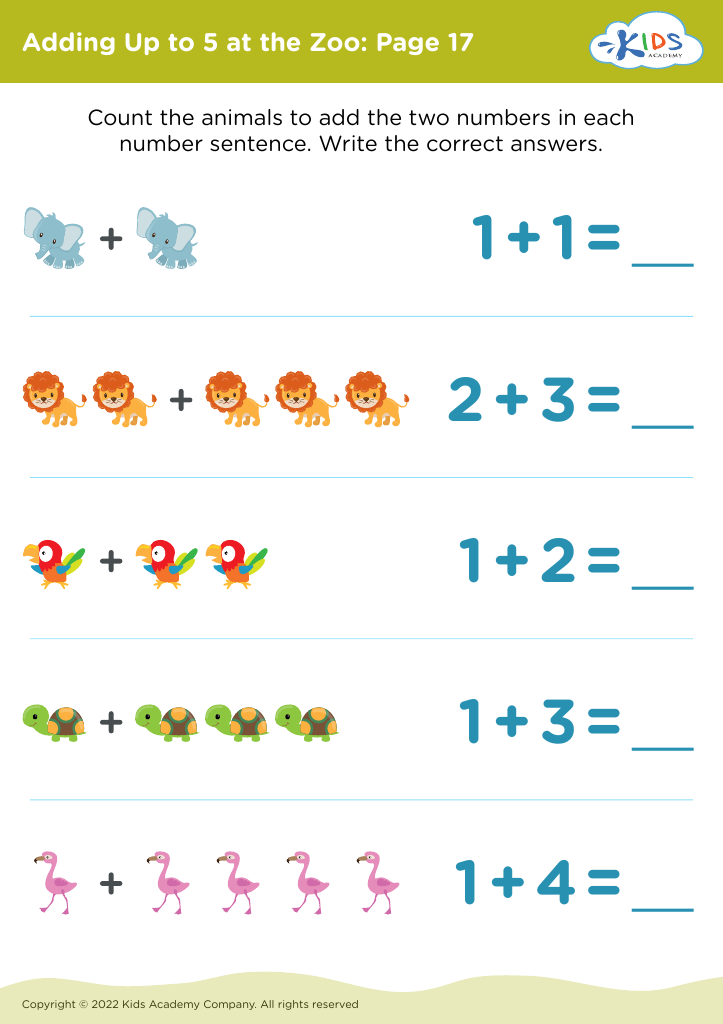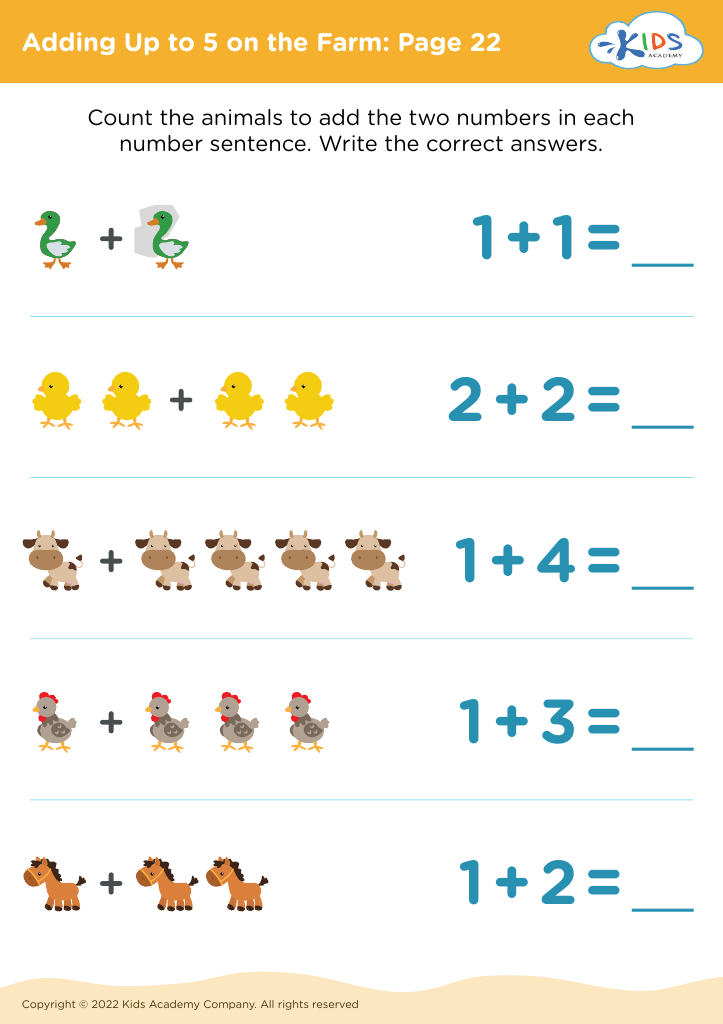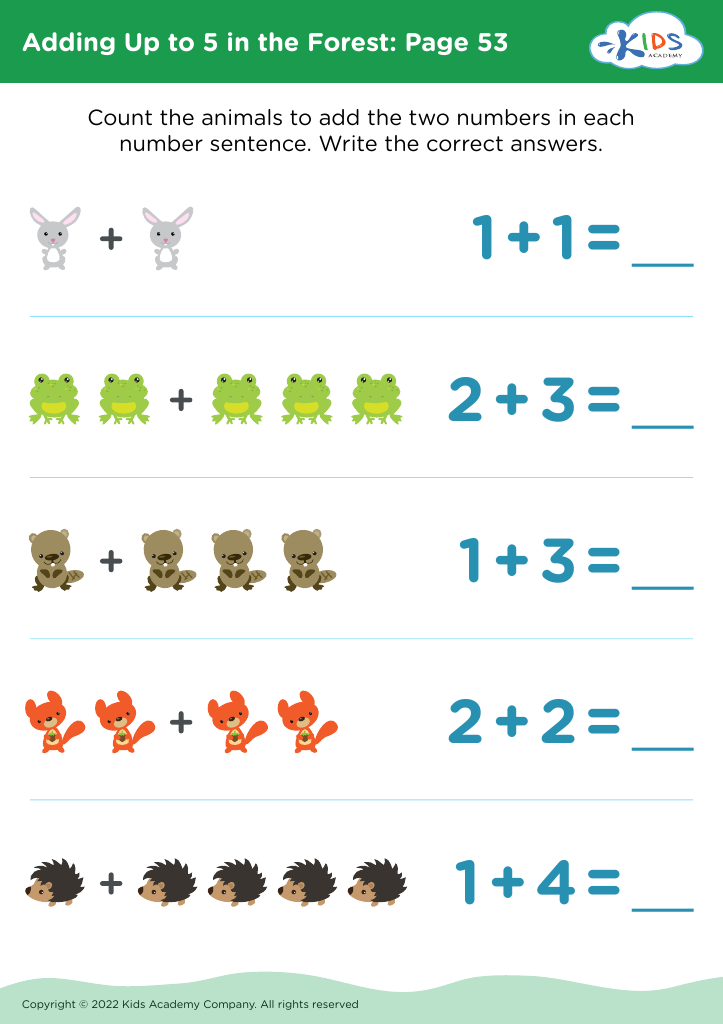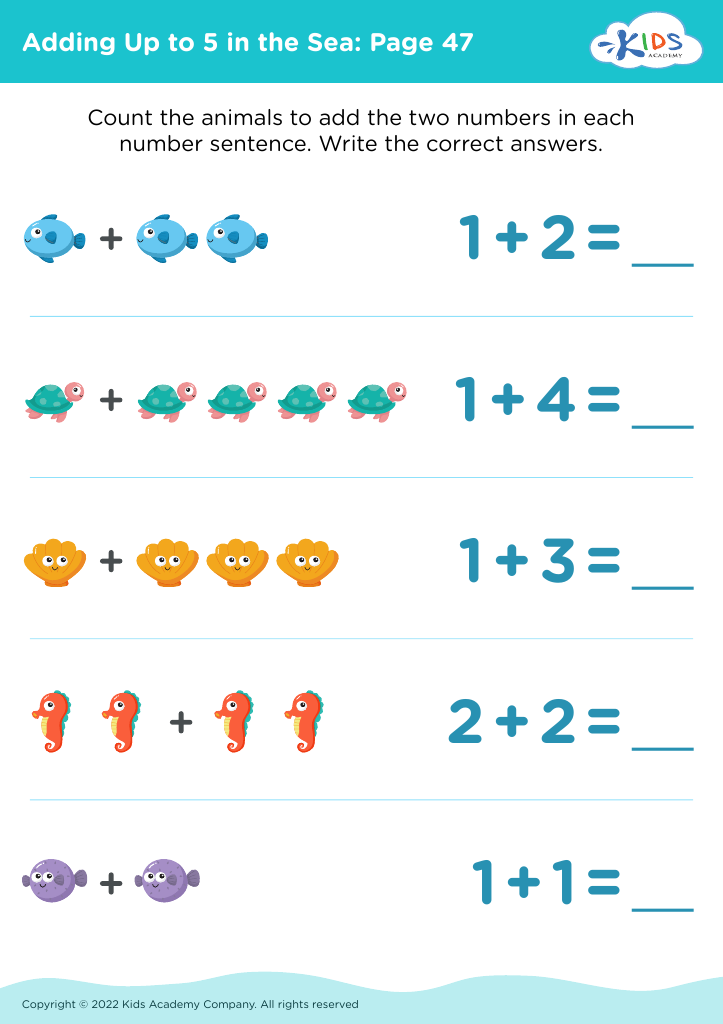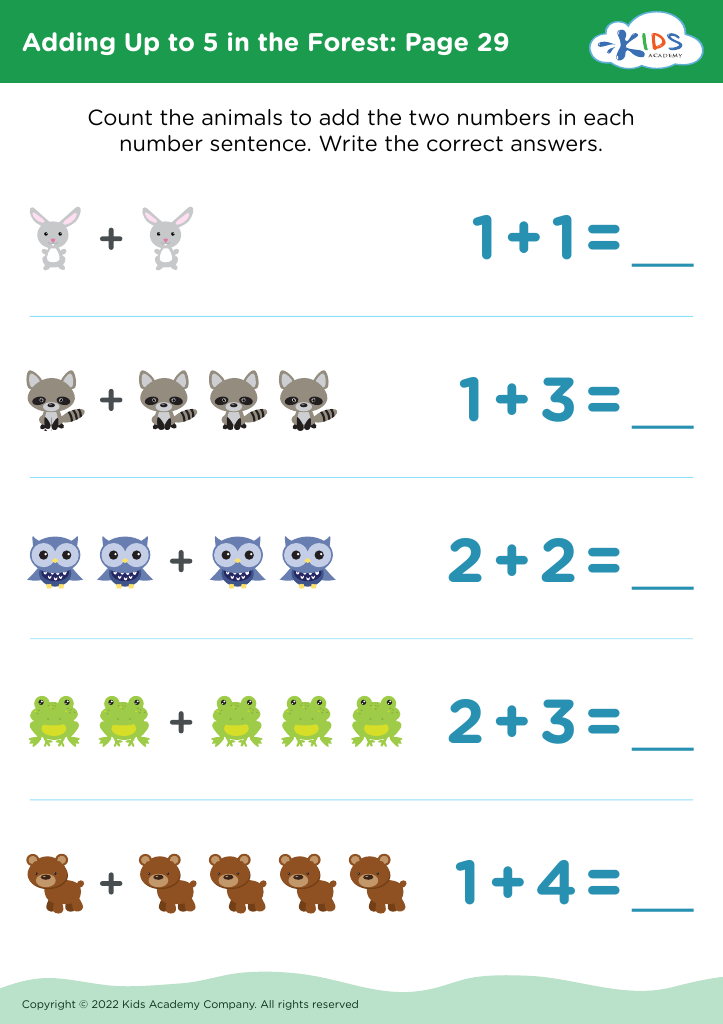Counting proficiency Addition Worksheets for Ages 4-7
11 filtered results
-
From - To
Equip young learners with essential math skills using our Counting Proficiency Addition Worksheets for Ages 4-7. Perfect for building a strong mathematical foundation, these worksheets focus on improving counting, number recognition, and basic addition. Our engaging activities and colorful designs capture children's interest, making learning enjoyable and effective. Suitable for both classroom use and homeschooling, these printables help kids practice crucial addition skills through fun exercises. Ideal for early grade teachers and parents, these worksheets ensure kids develop confidence in math, paving the way for future success. Download today and watch your child's counting abilities soar!
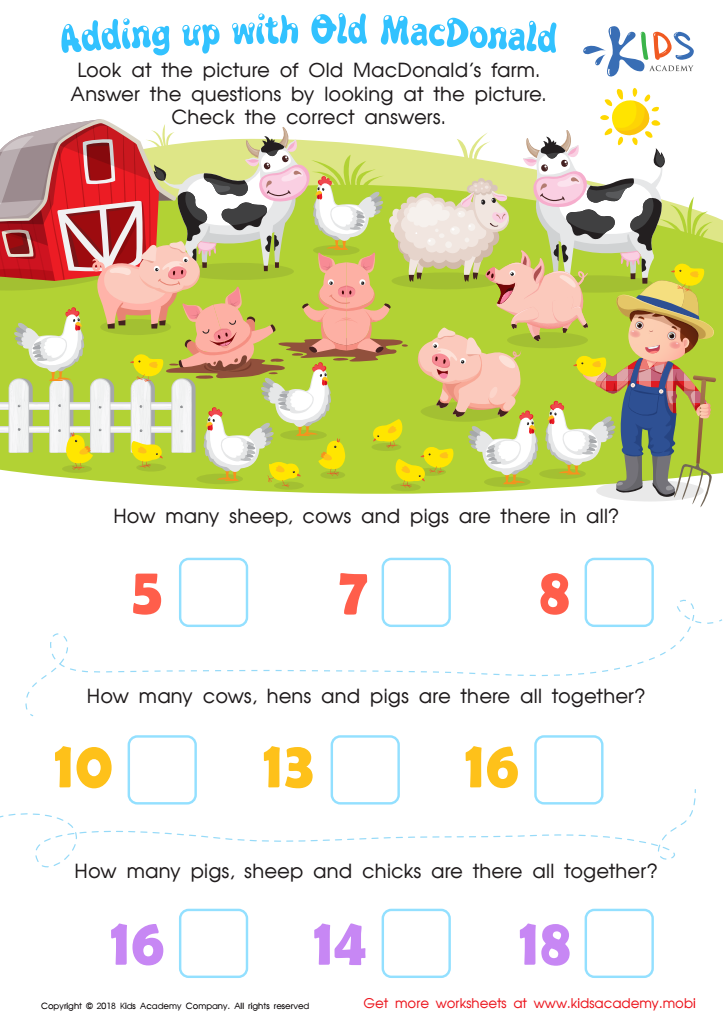

Adding Up with Old MacDonald Worksheet
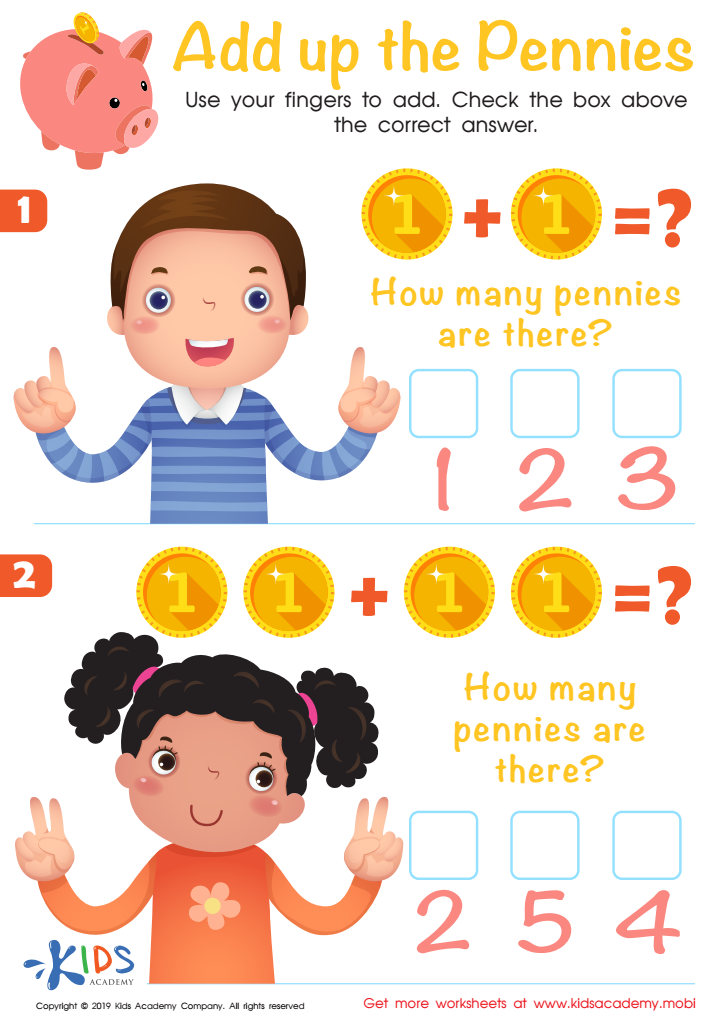

Add up the Pennies Worksheet
Counting proficiency and basic addition skills are fundamental building blocks for children aged 4-7, and parents and teachers should prioritize these abilities for several compelling reasons. Firstly, early math skills are linked to future academic success, not only in mathematics but across all subjects. Understanding numbers and basic operations lays a solid foundation for more complex mathematical concepts that children will encounter later in their education.
Counting proficiency aids in developing number sense, which involves the ability to understand, relate, and connect numbers. This is crucial for problem-solving and logical reasoning, skills that extend beyond math into everyday decision-making and complex problem-solving scenarios.
Furthermore, early engagement with addition helps children develop a positive attitude towards math. Positive early experiences can instill confidence and reduce math anxiety, which is common among students who struggle with mathematics.
Additionally, early math skills are strongly associated with better memory, attention, and executive function. These cognitive skills are essential for more accurate and efficient learning experiences.
To sum up, emphasizing counting and addition for young children is critical not just for their immediate academic achievement but for their overall intellectual development, confidence, and readiness for future learning challenges. Parents and teachers play a vital role in nurturing these skills through fun, engaging, and age-appropriate activities.
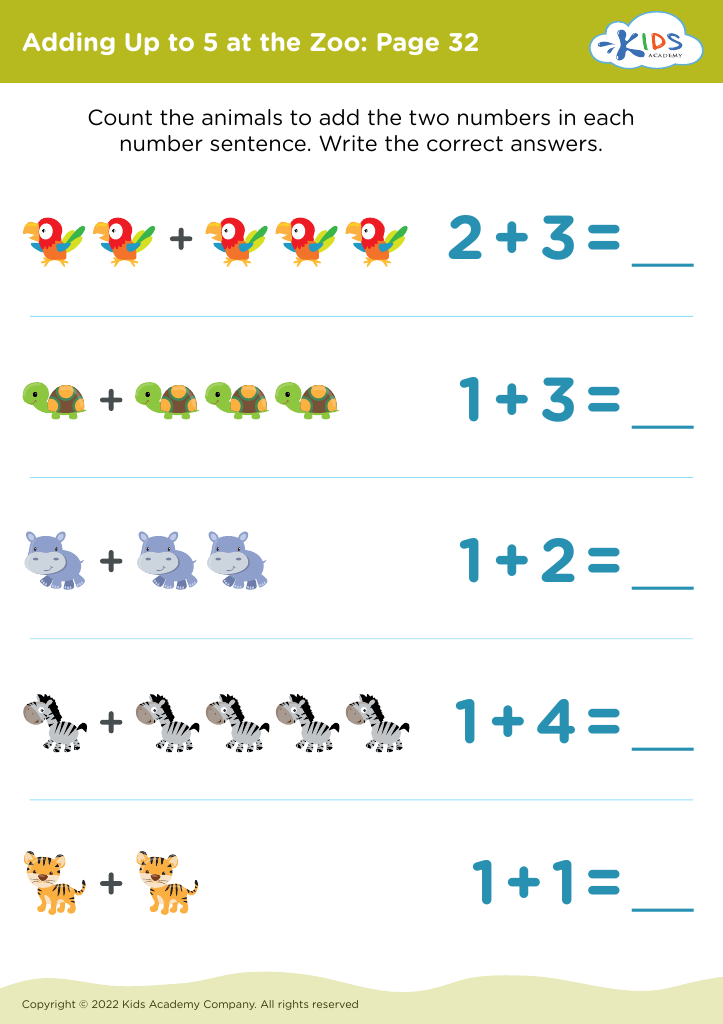

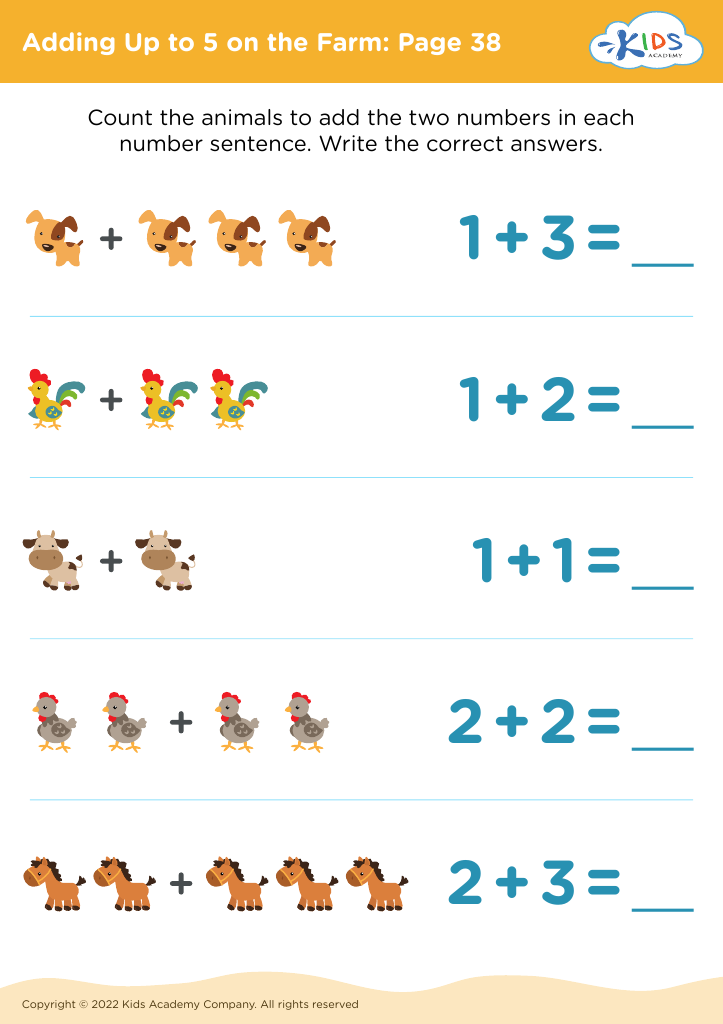
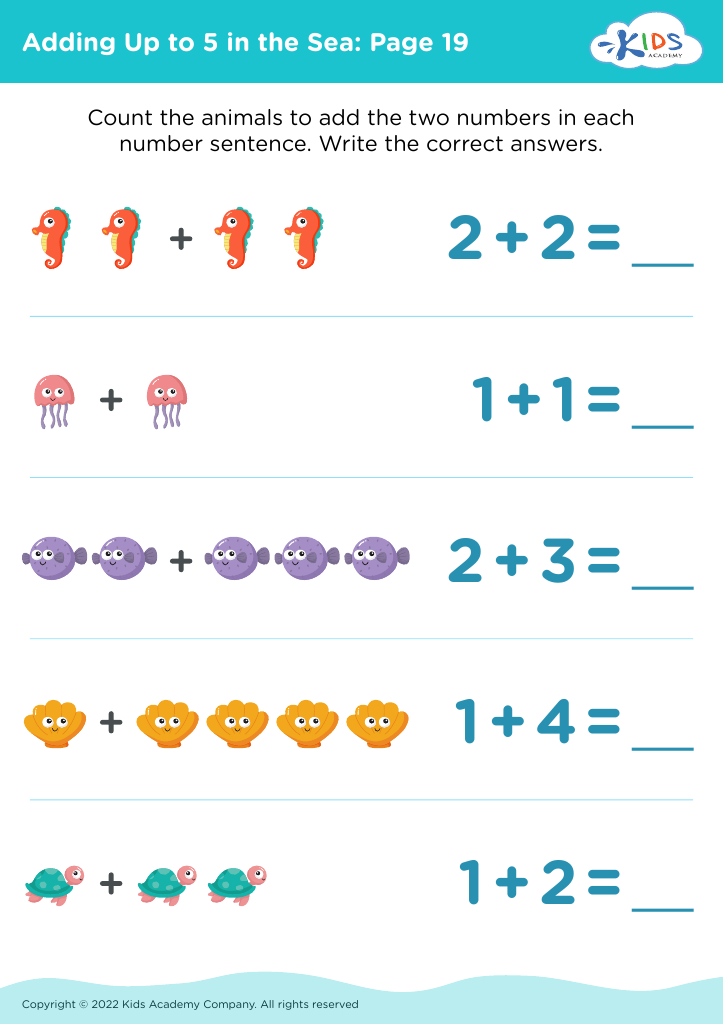
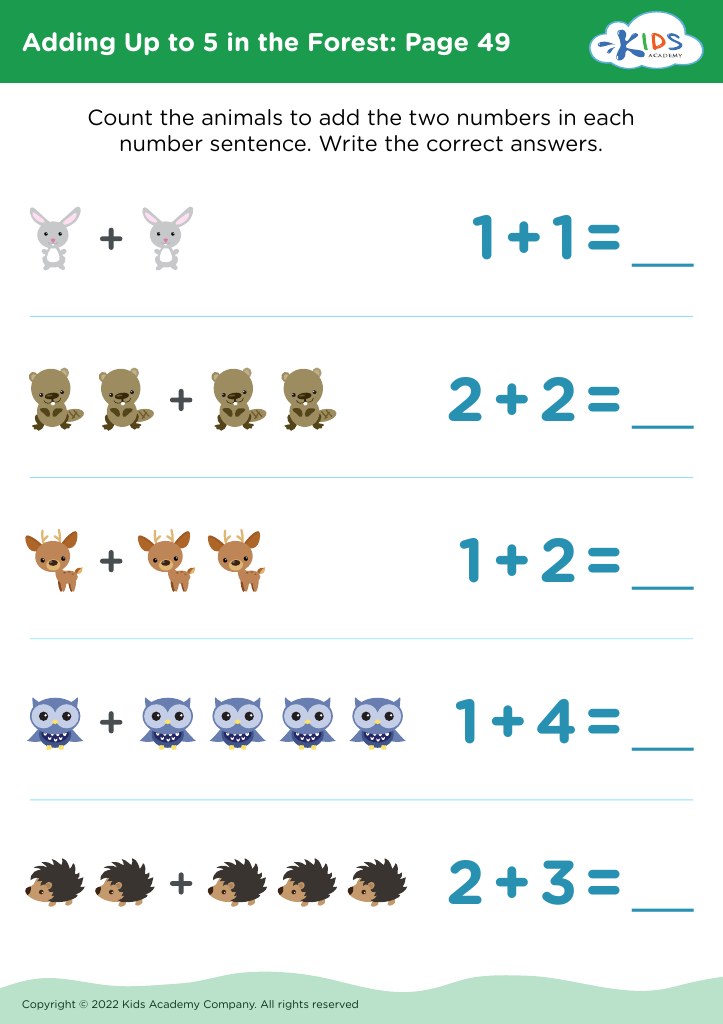
 Assign to My Students
Assign to My Students
